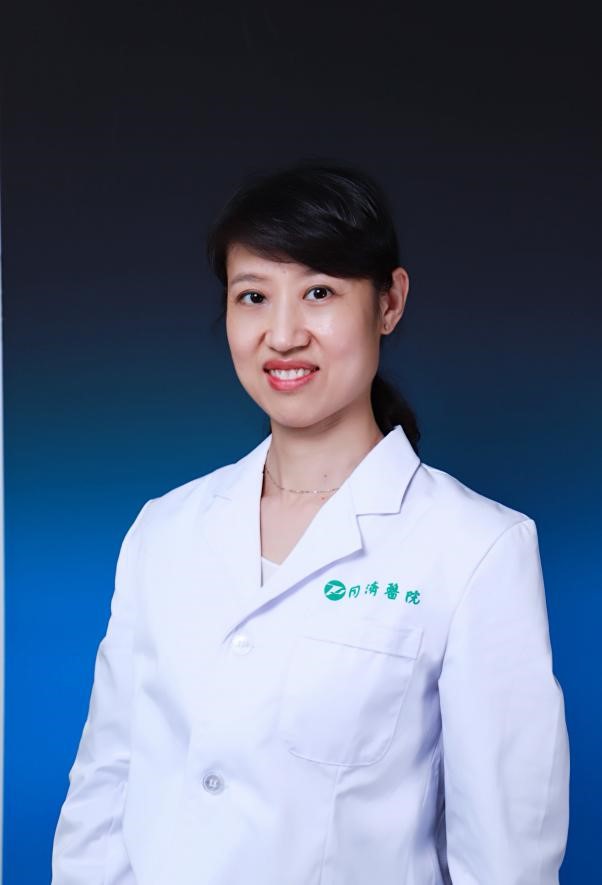
1. Personal Information
1>Name:DONG Lingli
2>Title: Professor
3>Department: Department of Rheumatology and Immunology
4>Research Focus/Interests:Pathogenesis and precise medicine of rheumatic diseases
5>Email: tjhdongll@163.com
2. Biography
DONG mainly focuses on the pathogenesis and immune regulation of autoimmune diseases, and has made important contributions to the diagnosis and treatment of IgG4-related diseases (IgG4-RD). During my PhD career in Japan, she finished the main work of discovering and naming IgG4 related diseases. After coming back to China, she pioneered the development of ELISA system for the detection of serum IgG4 levels. The book "IgG4 Related Diseases" edited by me is the first book focusing on the IgG4-RD composed by chineses, filling the gap in systematic knowledge about this rare disease in China. As a member of the ACR/EULAR IgG4-RD Classification Criteria Working Group, she participated in developing the latest international classification criteria for IgG4 RD, and she is one of the ten scientific committee members of the 5th International Symposium on IgG4-Related Disease.
3. Education & Training
Postdoctoral training From April 2007 to March 2008, Kanazawa Medical University, Japan;
PhD degree of clinical medicine From April 2003 to March 2007, Kanazawa Medical University, Japan; From May 2004 to April 2005, Albert Einstein College of Medicine, Montefiore Medical Center, USA;
Master degree of clinical medicine From September 1996 to June 1999, Huazhong University of Science and Technology, China;
Bachelor degree of clinical medicine From September 1991 to July 1996, Huazhong University of Science and Technology, China.
4. Boards, Advisory Committees, Professional Organizations
Director, Department of Rheumatology and Immunology, Tongji hospital;
Member, the Rheumatology Branch of the Chinese Medical Association;
Chairman, the Rheumatology Branch of Hubei Medical Association;
Chairman, Quality Control Center for Rheumatology and Immunology in Hubei Province.
5. Awards & Honors
New Century Excellent Talent Support Program, 2013, Ministry of Education;
“May 1” labor medals, 2019, Hubei Provincial Federation of Trade Unions;
“Top Ten Medical Pioneer Experts”, 2022, Physician Newspaper.
6. Selected Publications
1. Masaki Y, Dong L, Kurose N, et al. Proposal for a new clinical entity, IgG4-positive multiorgan lymphoproliferative syndrome: analysis of 64 cases of IgG4-related disorders. Ann Rheum Dis. 2009;68(8):1310-1315. doi:10.1136/ard.2008.089169
2. Cai S, Hu Z, Chen Y, et al. BLyS/APRIL dual inhibition for IgG4-RD: a prospective single-arm clinical trial of telitacicept. Ann Rheum Dis. 2023;82(6):881-883. doi:10.1136/ard-2022-223529
3. Ye C, Cai S, Shen G, et al. Clinical features of rheumatic patients infected with COVID-19 in Wuhan, China. Ann Rheum Dis. 2020;79(8):1007-1013. doi:10.1136/annrheumdis-2020-217627
4. Zhong J, Shen G, Yang H, et al. COVID-19 in patients with rheumatic disease in Hubei province, China: a multicentre retrospective observational study [published correction appears in Lancet Rheumatol. 2021 Jun;3(6):e408]. Lancet Rheumatol. 2020;2(9):e557-e564. doi:10.1016/S2665-9913(20)30227-7
5. Zhong J, Tang J, Ye C, Dong L. The immunology of COVID-19: is immune modulation an option for treatment?. Lancet Rheumatol. 2020;2(7):e428-e436. doi:10.1016/S2665-9913(20)30120-X
6. Wang X, Ye C, Lin X, et al. New insights into the significance of the BCR repertoire in B-1 cell development and function. Cell Mol Immunol. 2019;16(9):772-773. doi:10.1038/s41423-019-0249-6
7. Cai S, Chen Y, Hu Z, et al. The landscape of T and B lymphocytes interaction and synergistic effects of Th1 and Th2 type response in the involved tissue of IgG4-RD revealed by single cell transcriptome analysis. J Autoimmun. 2022;133:102944. doi:10.1016/j.jaut.2022.102944
8. Wang C, Ming B, Wu X, et al. Sphingomyelin synthase 1 enhances BCR signaling to promote lupus-like autoimmune response. EBioMedicine. 2019;45:578-587. doi:10.1016/j.ebiom.2019.06.038
9. Zhu Y, Gu H, Yang L, et al. Involvement of MST1/mTORC1/STAT1 activity in the regulation of B-cell receptor signalling by chemokine receptor 2. Clin Transl Med. 2022;12(7):e887. doi:10.1002/ctm2.887
10. Chen Y, Cai S, Dong L, Umehara H. Update on classification, diagnosis, and management of immunoglobulin G4-related disease. Chin Med J (Engl). 2022;135(4):381-392. Published 2022 Jan 4. doi:10.1097/CM9.0000000000001891
11. Ming B, Zhu Y, Zhong J, Dong L. Regulatory T cells: a new therapeutic link for Sjögren syndrome?. Rheumatology (Oxford). 2023;62(9):2963-2970. doi:10.1093/rheumatology/kead070
12. Zhao Z, Huang Y, Ming B, Zhong J, Dong L. Characterization and associated risk factors of Pneumocystis jirovecii pneumonia in patients with AIRD: a retrospective study. Rheumatology (Oxford). 2022;61(9):3766-3776. doi:10.1093/rheumatology/keab941
13. Omar D, Chen Y, Cong Y, Dong L. Glucocorticoids and steroid sparing medications monotherapies or in combination for IgG4-RD: a systematic review and network meta-analysis. Rheumatology (Oxford). 2020;59(4):718-726. doi:10.1093/rheumatology/kez380
14. Tang J, Cai S, Ye C, Dong L. Biomarkers in IgG4-related disease: A systematic review. Semin Arthritis Rheum. 2020;50(2):354-359. doi:10.1016/j.semarthrit.2019.06.018
15. Dong Y, Ming B, Gao R, et al. The IL-33/ST2 Axis Promotes Primary Sjögren's Syndrome by Enhancing Salivary Epithelial Cell Activation and Type 1 Immune Response. J Immunol. 2022;208(12):2652-2662. doi:10.4049/jimmunol.2101070
7. Books
IgG4-related disease, 2023, China Union Medical College Press, Editor in Chief
IgG4-related disease, 2015, Military Medical Science Press, Editor in Chief
8. Projects, Fundings, Programs
Leading 5 programs funded by National Natural Science Foundation of China (NSFC)

